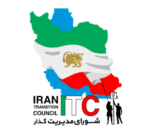Adam Lucente (Al Monitor)
CIA Director nominee William Burns said Iran cannot be overlooked, but advocated for a focus on China during his nomination hearing Wednesday.
Burns, who was nominated for the top intelligence position by US President Joe Biden, went before the Senate Select Committee on Intelligence on Wednesday.
Burns is a longtime diplomat who served in top State Department positions under Presidents George W. Bush and Barack Obama. He was assistant secretary of state for Near Eastern Affairs during the 2003 invasion of Iraq and deputy secretary of state from 2011 to 2014. In the Middle East, he was ambassador to Jordan from 1998 to 2001.
Much of the senators’ focus during the hearing was on China. Republican Sen. Marco Rubio of Florida, the vice chairman of the committee, pressed Burns on the Carnegie Endowment for International Peace’s partnership with Chinese entities, including Tsinghua University. Burns is serving as president of the US-based think tank.
Burns said China would be his top focus if confirmed, calling it “the biggest geopolitical test that we face.” He took a critical stance toward the People’s Republic throughout the hearing, describing an “adversarial predatory Chinese leadership” under President Xi Jinping.
Iran and its alleged pursuit of a nuclear weapon was another major topic at the hearing. Republican Sen. John Coryn of Texas asked Burns if he thought it would ever be acceptable for Iran to acquire a nuclear weapon, to which Burns answered, “No, sir.”
“The challenges posed by Iranian behavior, for example, are hugely significant and ones that we can’t afford to ignore,” said Burns.
Burns specifically mentioned Iran’s development of ballistic missiles, in addition to “subversive and destabilizing actions in the Middle East and human rights abuses to its own people inside Iran.”
The Biden administration wants to rejoin the 2015 nuclear agreement with Iran, which lifted sanctions in exchange for the Islamic Republic scaling down its nuclear program. President Donald Trump withdrew the United States from the deal in 2018. Iran is no longer in compliance with the agreement’s stipulations. The agreement sought to prevent Iran from obtaining a nuclear weapon.
Biden wants Iran to return to compliance before rejoining the deal. Iran says the United States, as the party that left, must return first.
Republican Sen. Tom Cotton of Arkansas asked if Biden’s desire to return to the Iran nuclear deal would color his intelligence assessments on Iran.
“On Iran … it will be my obligation if confirmed to deliver those intelligence assessments in a straightforward and unvarnished way,” said Burns.
Burns also addressed the 2003 invasion of Iraq, mentioning his 2002 “perfect storm” memo to then Secretary of State Colin Powell. The memo did not advise against the war, but warned of the possible negative consequences of removing Saddam Hussein from power.
Burns declined to specifically answer a question from Republican Sen. Ben Sasse of Nebraska on shifting the intelligence budget from counterterrorism toward China. Burns noted there is a “continuing threat from terrorist groups” as well as “clearly huge emerging challenges.”
The ambassador did not mention many other Middle Eastern states during the hearing, but said he viewed Israeli intelligence as “extremely capable” during his diplomatic career, especially regarding its use of technology.
Burns also said the United States cannot afford to underestimate Russia and its president, Vladimir Putin.
“While Russia may be in some ways a declining power, it can be at least as disruptive under Putin’s leadership as rising powers like China,” said Burns.
Russia is active in the Middle East, and heavily supports the Syrian government in the Syrian civil war.
The committee’s questionnaire Burns filled out ahead of the hearing disclosed gifts he has received from officials while president of the Carnegie Endowment. He listed a trip to the Super Bowl from the Saudi ambassador and holiday baskets from the king of Jordan among these.









